During the past year, faculty from the University of Notre Dame’s Department of History received multiple awards and fellowships in recognition of their research. The honors include a Guggenheim fellowship, two invitations to the Institute for Advanced Study (IAS) in Princeton, N.J., several fellowships from the National Endowment for the Humanities (NEH), and the Haskins Medal—the highest award granted by the Medieval Academy of America.
“These awards recognize what a fine department we really are,” says Patrick Griffin, Madden-Hennebry Professor of History and chair of the department. “Few history departments in the United States can match us in this regard.
“We have won these awards and maintained an enviable level of scholarly productivity while providing our majors with a rigorous and engaging education. We are proudest of striking this balance.”
The Devotio Moderna
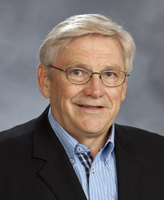
John Van Engen, Andrew V. Tackes Professor of History in the College of Arts and Letters, won the 2013 Haskins Medal for his book, Sisters and Brothers of the Common Life: The Devotio Moderna and the World of the Later Middle Ages.
“John Van Engen’s magisterial study of the Devotio Moderna is a major contribution to our understanding of lay spirituality in the later Middle Ages and an interdisciplinary tour de force,” says the Medieval Academy’s outgoing president, Maryanne Kowaleski, the Joseph Fitzpatrick S.J. Distinguished Professor of History and director of medieval studies at Fordham University.
Sisters and Brothers of the Common Life focuses on a religious movement known as the “Modern Devotion.” According to Van Engen, this 14th century Dutch group lived a dedicated religious life while refusing to profess vows as members of any religious order. Instead, they organized themselves as an independent community with complete commonality of life and goods, cultivating spirituality through a life of service.
Despite facing criticism and censure from Church officials for their unconventional behavior, the group survived, even spreading outward toward Münster, Flanders, and Cologne. Over time,” Van Engen says, “their influence was enormous, including upon the famous humanist Erasmus.”
Van Engen received three previous honors for Sisters and Brothers of the Common Life—the 2010 Otto Gründler Book Prize, the 2009 John Gilmary Shea Prize, and the 2009 Philip Schaff Prize.
Early American Travel
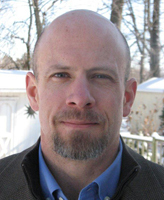
Professor Jon T. Coleman was recently awarded a John Simon Guggenheim Memorial Foundation fellowship to work on an environmental history of movement in America between the American Revolution and the Civil War.
“I’m interested in how travel and migration interacted with other natural movements like seasonal cycles of plant growth—such as grass to feed beasts of burden—and hydrological and weather cycles that influenced river flows and wind patterns for sailing,” Coleman says.
The historian’s environmental work is not just about the past, he notes. “I definitely want this project to get people thinking about how they move today.”
According to the foundation, Guggenheim Fellowships recognize those who have already demonstrated exceptional capacity for productive scholarship or exceptional creative ability in the arts. Only 200 fellows are chosen from the 3,500 to 4,000 applications received each year.
Economics and Medicine
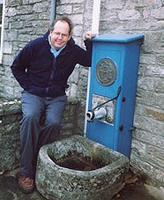
Professor Christopher Hamlin has been invited to study as a fellow at the IAS for the 2013-14 academic year. While there, he plans to continue his research on the economic causes underlying the epidemics and famine that plagued Scotland and Ireland in the early- to mid-19th century.
Hamlin, who is also a fellow at Notre Dame’s John J. Reilly Center for Science, Technology, and Values, says his 1998 book on the emergence of modern public health in Britain led to his examination of such issues in Scotland and Ireland.
“One of the things I discovered while working on that book was that the relationship between economic policy and health policy was much more significant than most people thought,” he says.
The IAS is one of the world’s leading centers for theoretical research and intellectual inquiry and has been home to distinguished scholars such as Albert Einstein, Kurt Gödel, and J. Robert Oppenheimer.
An Islamic Dynasty
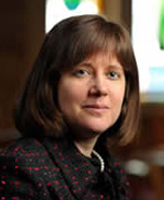
Assistant Professor Deborah Tor was awarded fellowships from both the IAS and NEH, in recognition of her research on the Great Seljuq Dynasty in the Islamic heartlands.
The dynasty, from 1040-1194, was pivotal in the trajectory of Islamic history, Tor says. The Seljuqs were the first of several successive waves of Central Asian nomadic confederations to invade and conquer the central Islamic lands, inaugurating a thousand years of foreign Turco-Mongol rule. They were also the first since the political disintegration of the original unitary Caliphate to rule over the entire Middle East.
The Seljuqs presided over and helped shape major religious, political, and societal changes, during which many of the final contours of classical Islamic society took shape, Tor says, adding that the ramifications of their rule extend to the present.
College of Arts and Letters faculty have had noteworthy success with NEH grants, receiving a total of 49 fellowships between 1999 and 2013—more than any other university in the country.
The Press as Political Tool
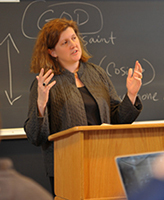
Associate Professor Margaret Meserve has been awarded a fellowship from the NEH to work in residence at the Newberry Library in Chicago. There, she will continue her research on the news cycle in Renaissance Rome.
Her work examines the phenomenon of “political print” in the papal city from the arrival of the press in the late 1460s to the Sack of Rome in 1527. While historians have long understood the impact of print technology on classical literature and humanistic learning in the Italian Renaissance, Meserve says, the use of the press as a political tool has been understood more as a northern European phenomenon.
“My project introduces papal Rome as a site of equal importance in the history of political publication,” she says, noting that Renaissance Rome was “a hub of international scholarship, diplomacy, and intrigue” where a steady stream of events—wars, invasions, assassinations, discoveries, conspiracies, and even hints of the Apocalypse—fed the nascent news industry of the city.
Meserve began focusing on this area of research in 2006, when she was awarded fellowships from both the NEH and ACLS, as well as a Rome Prize fellowship from the American Academy in Rome.
An Empire of Fakes
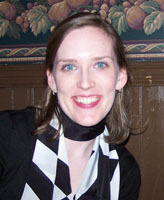
Assistant Professor Catherine Cangany was awarded a fellowship from the American Council of Learned Societies (ACLS) for her research project “An Empire of Fakes: Counterfeit Goods in 18th Century America.”
With the grant, she will take the next year to conduct research in London, Boston, New York, and Charleston, S.C. She also won a six-month fellowship, funded by the NEH, to research at the John Carter Brown Library in Rhode Island.
“Probably more than half of the transactions in the colonial period were illegal,” Cangany says. “These counterfeit goods have a lot to tell us about economies and cultural practices, and the way people evaluated merchandise they were bombarded with all day long. That’s something people are still facing in 2013.”
The ACLS selected just 65 winners from among 1,121 applications this year, including four from Notre Dame’s College of Arts and Letters.
History of Christianity
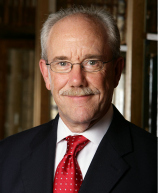
Professor Thomas F.X. Noble has been chosen as president-elect of the American Society of Church History (ASCH) for 2013 and will become its president the following year.
Noble’s selection coincides with the end of his 2012 term as president of the American Catholic Historical Association (ACHA), a national society of scholars, archivists, and teachers of Catholic studies. He will be the sixth person to serve as president of both the ASCH and ACHA—and the first ever to serve as president of both organizations in successive years.
Founded in 1888, the ASCH encourages the study of the history of Christianity and its relationship to surrounding cultures in all periods, locations, and contexts. The scholarly organization supports its mission through conferences, grants, awards, and publication of a journal called Church History: Studies in Christianity and Culture, for which Noble is a member of the editorial board.
Invitation to Seminary
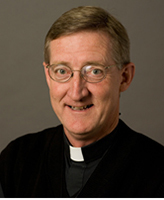
Rev. Wilson D. (Bill) Miscamble, C.S.C., a professor in the Department of History, has been awarded the Chester and Margaret Paluch Chair of Theology at Mundelein Seminary for the 2013-14 academic year.
University of St. Mary of the Lake/Mundelein Seminary is the major seminary and graduate school of theology for the Archdiocese of Chicago.
Ordained in 1988, Miscamble is a former chair of the Department of History and has served as rector and superior of Moreau Seminary, the principal formation site for the Congregation of Holy Cross in North America. His primary research interests are American foreign policy since World War II and the role of Catholics in 20th century U.S. foreign relations.
Learn More>
- Catherine Cangany faculty page
- Jon T. Coleman faculty page
- Christopher Hamlin faculty page
- Margaret Meserve faculty page
- Rev. Wilson D. (Bill) Miscamble, C.S.C. faculty page
- Thomas F.X. Noble faculty http://history.nd.edu/faculty/directory/thomas-f-x-noble/
- Deborah Tor faculty page
- John Van Engen faculty page
- Related Story: Historian John Van Engen Awarded 2013 Haskins Medal
- Related Story: Historian Jon Coleman Awarded Guggenheim Fellowship
- Related Story: History Professor Christopher Hamlin Invited to the IAS
- Related Story: Historian Deborah Tor Awarded Fellowships from IAS and NEH
- Related Story: Historian Catherine Cangany Wins ACLS Fellowship to Research Counterfeit Goods
- Related Story: Thomas Noble Elected to Lead American Society of Church History
Originally published by at al.nd.edu on September 24, 2013.